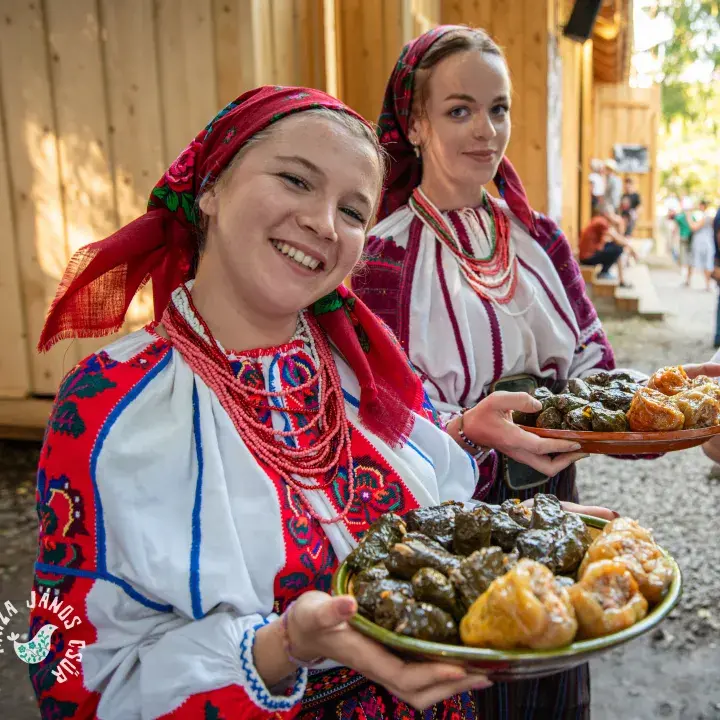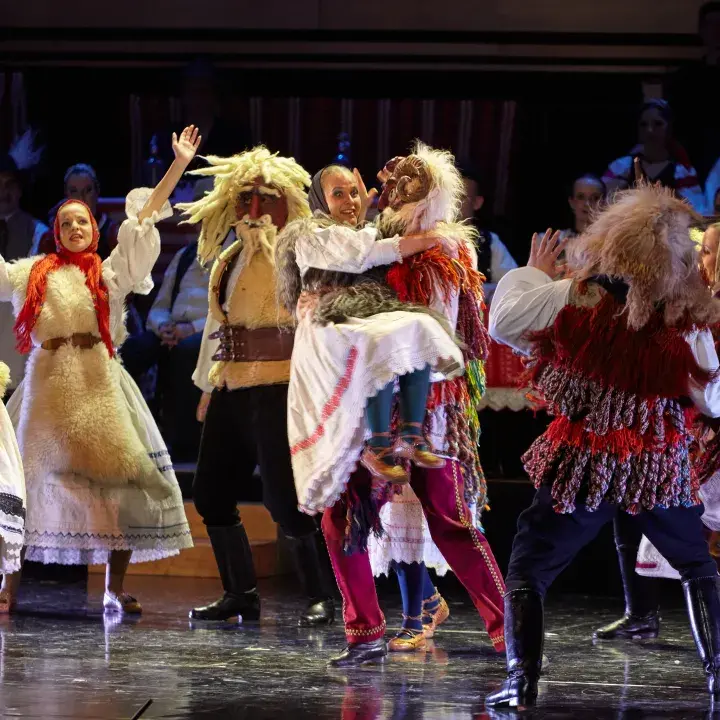Phone: +36 1 225-6058,
e-mail: fdk@hagyomanyokhaza.hu
The Hungarian ethnographer Béla Vikár was the first in Europe to record folk songs with a phonograph in 1896. Later Béla Bartók and Zoltán Kodály also started their researches and established the basis of Hungarian ethnomusicology and comparative international researches, extending their research on the folklore of all nations living in the Carpathian Basin. Apart from the academic processing of collected songs and folk music, they emphasized the significance of folklore in contemporary art and education. László Lajtha, their younger colleague, continued their work. It was György Martin who later began the scientific research of Hungarian folkdances, eliciting an interaction between academic research and folklore movements. The Dance-house ('Táncház') movement and the "folk dance on stage" movement of the 1970's drew attention to the keen demand for institutionalizing folklore research.
In 1981, with the House of Professional Folk Dancers was established on György Martin's initiation. After Martin's death in 1983, the connection established between institutions and the living folklore loosened, while the interest in the folklore of the Carpathian Basin considerably increased all over the world, especially after 1990.
The "László Lajtha" Folklore Documentation Center was established in order to meet both scientific and functional demands. The Center inherited and enlarged the stock formerly belonging to the House of Professional Folk Dancers. By means of modern technology and the Internet, it provides access to all available documents on the folklore of the Carpathian Basin. The Center digitalizes folk music, folkdance and other documents on folklore in their original from.
After processing, the audiovisual materials are archived in CD and DVD formats. The principles of our digitalization process are published on the website.
A large number of records is listed in a multimedia database where the items are arranged in a thematic order. Processing of data is being continuously refined, thus enabling a complex search. Records can also be watched and listened to online.
For educational or research purposes, copies of the records can be requested at the Martin Media Library. A search program is also available on the website of the Folklore Documentation Center.


